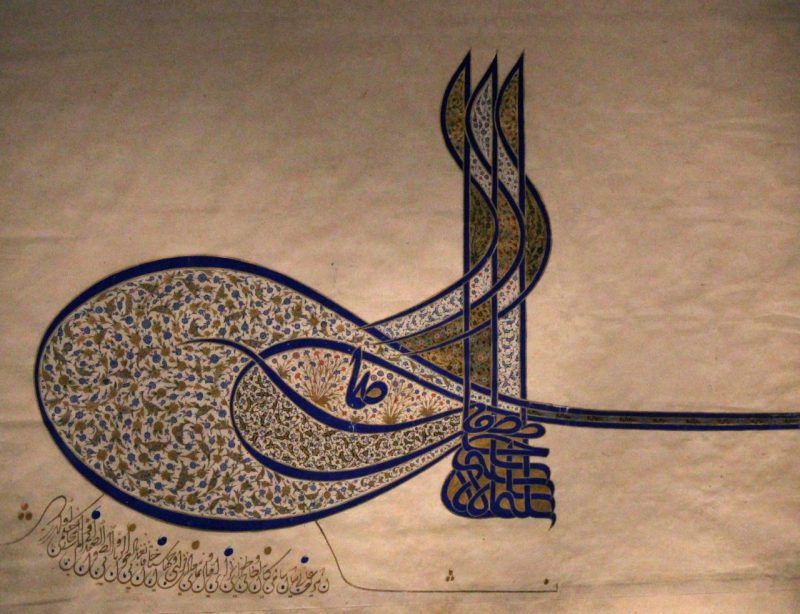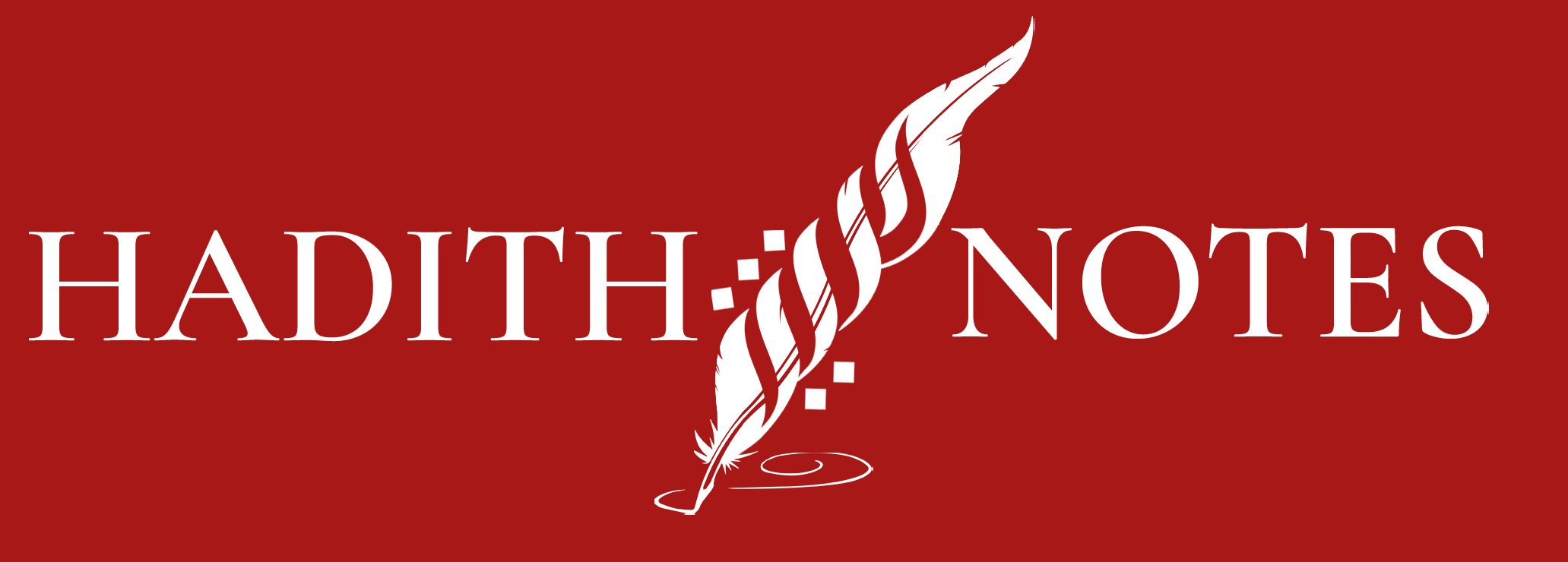Translator’s Preface The following is an excerpt from our abridged translation of the masterpiece, Athar al-Hadīth al-Sharīf fī Ikhtilāf al-A’immah al-Fuqahā’, by the Syrian Hadīth scholar, the teacher of our teachers, Shaykh Muhammad ‘Awwāmah. There were numerous requests for an abridged translation of the work for the benefit of non-Arabic readers, as the original work is relatively lengthy. The abridged translation has now been completed. We will post sections of it in installments and finally publish the complete abridgement in a separate post. The excerpt before you is a clarification of two common misunderstandings. The first is the notion that the mere authenticity of a narration is sufficient to practice upon it. The second is the notion that there is no need to follow the Imams...
Is the Authenticity of a Hadīth Sufficient to Practice upon it?
The Correct Meaning of the Statement “When a Hadīth Is Authentic, It Is My Opinion”
Translator’s Preface The following is an excerpt from our abridged translation of the masterpiece, Athar al-Hadīth al-Sharīf fī Ikhtilāf al-A’immah al-Fuqahā’, by the Syrian Hadīth scholar, the teacher of our teachers, Shaykh Muhammad ‘Awwāmah. There were numerous requests for an abridged translation of the work for the benefit of non-Arabic readers, as the original work is relatively lengthy. The abridged translation has now been completed. We will post sections of it in instalments and finally publish the complete abridgement in a separate post. The excerpt before you is a clarification of a famous statement issued by the Imāms of the madhhabs, “When a Hadīth is authentic, it is my opinion.” In recent times, a literal and overzealous reading of this...
A Chronological List of Prominent Hanafi Jurists – Arabic

جَدوَل لأسماء أعلام الفقهاء الحنفية ومواليدهم ووفياتهم مع ذكر بعض مؤلفاتهم لا يشك من له أدني إلمام بالعلم أن معرفة مواليد ووفيات الأعلام لها أهمية خاصة للباحث، وهذا لأسباب عديدة. منها أنها تعين الباحث على تعيين المراد باسم علم أو عنوان كتاب، وتحفظه من الأخطاء البينة من هذا القبيل. فإنه قد يتفق أن لكتابين عنوانا واحدا أو لعلمين اسما واحدا – مما يكون سببا للإختلاط على المبتدئ – مع أن الكتابين ألّفا في عصرين مختلفين أو العلمين ولدا في زمنين مختلفين، وهذا يحمل الباحث على إدراك الصواب في تعيين المراد بذلك الإسم أو العلم. فابن عابدين – مثلا – إذا نقل عبارة في مسألة من مسائل المناسك وعقبه بقوله “كما في اللباب” فالظاهر أن النقل من “لباب المناسك” لرحمة الله السندي دون “اللباب في شرح الكتاب” لتلميذه عبد الغني الغنيمي. نظرا لهذه الأهمية أعددت هذا الجَدوَل لأسماء...
A Chronological List of Prominent Hanafi Jurists – English

A Chronological List of Prominent Hanafi Jurists The importance of knowing the dates of birth/death of the scholars cannot be stressed enough. For one, it saves a researcher from obvious blunders and inaccurate referencing. Many a times, several scholars or books share the same name but are from entirely different eras. Thus, when a scholar like Ibn ‘Ābidīn quotes “al-Lubāb,” for example, it is obvious that he is referring to a book other than that of his student, ‘Abd al-Ghanī al-Ghunaymī. The following is a chart of the names, birth/death dates, and works of major Hanafī jurists, starting from the Imām of the Madhhab until the jurists of the present century. In this chart, we have sufficed on the relatively prominent jurists, as otherwise, there would be no end to the list. Many other...
A Diamond Among Rocks: Nisāb Al-Ihtisāb (The Manual of Al-Ihtisāb)
A Diamond Among Rocks: Nisāb Al-Ihtisāb (The Manual of Al-Ihtisāb) Among the many contributions of Islām which Muslims have rightfully boasted of through the ages has undoubtedly been its contribution in\ the line of academia. The very first revelation to the Messenger of Allāh (peace and blessings be upon him) bears first hand testimony to this fact. From the intricacies of language to the subtleties of the spiritual heart, Muslim scholars have left no stone unturned in their contribution to humanity in general, and to the Muslim community in particular. One subject, seldom discussed, yet has played an important role in the smooth regulation of the affairs of Muslims for centuries is al-Ihtisāb, or “enforcing public good and preventing public wrong.” The topic of al-Ihtisāb...
An Analysis of the Hadīth “Whoever Assists a Mu’min in Distress, Allāh Will Grant Him Seventy-Three Rewards…”
An Analysis of the Hadīth “Whoever assists a Mu’min in distress, Allāh will grant him seventy-three rewards, one of which will suffice him in this world and the remaining will be saved for the Hereafter…” In the Name of Allah, the Most Gracious, the Most Merciful Abstract: The Hadīth in reference has been reported on the authority of two Sahābah with slight variations in the wording: Thawbān and Anas (Allāh be pleased with them). The narrators from Anas are Ziyād ibn Abī Hassān, ‘Abd Allāh ibn ‘Abd al-Rahmān, Abān, ‘Abbād ibn ‘Abd al-Samad and Dīnār, the freed slave of Anas. Although some of these transmissions are weak (da‘īf) and some inadmissible (munkar), the Hadīth gains strength from the multiplicity of the slightly weak transmission and is thus suitable to mention. Analysis In...
Is Giving a Lecture Before Jumu’a an Innovation?
Translator’s Preface It has become a norm in our era to label acceptable practices in religion as innovations. Unfortunately, our Masājid have become arenas of disputation and debate; luminaries and high-ranking Islamic scholars are branded as innovators. Many issues that have a legitimate basis in religion are rejected under the pretext that they are innovations not found in the early era of Islām. One such issue is the ruling of delivering a lecture prior to the Jumu‘a prayer. Many people claim that the prohibition of delivering a lecture before Jumu‘a can be inferred from Hadīth. Further, they assert that such a practice was not found among our pious predecessors. Hence, it is an innovation. The article before you is an abridged translation of the treatise “Mashrū‘iyyat al-Dars Qabl...
Imām Abū Hanīfah and The Statement of Imām al-Bukhārī “Some People Say”: Between Fact and Fiction
Translator’s Preface In recent times, there has been great confusion between two distinct concepts: Ikhtilāf [legitimate disagreement] and Khilāf [illegitimate disagreement]. Many misinformed people, for lack of Suhbah (companionship) of traditional scholars and spiritual guides, read the differences of the Salaf and misinterpreted their Ikhtilāf as Khilāf. Undoubtedly, the Sahābāh (may Allah be pleased with them) were the most united group of individuals to have walked the earth, yet they differed with each other in their verdicts and opinions while remaining within the boundaries of Ikhtilāf. Conversely, the divergences of deviant groups like the Khawārij, Shī‘a and Mu‘tazila in relation to the Ahl al-Sunnah wa ‘l-Jamā‘a are considered Khilāf, as there is no scope for academic tolerance...
An Analysis of the Hadith: “Whoever Begins His Meals with Salt Will Be Saved From Seventy Diseases”
An Analysis of the Hadīth: “Whoever Begins His Meals with Salt Will Be Saved From Seventy Diseases” By Muntasir Zaman In the Name of Allāh, the Most Gracious, the Most Merciful. [Summary: This Hadīth has been reported Marfū‘an – from the Messenger of Allāh (peace and blessings be upon him) – on the authority of four Sahābah: ‘Alī, Anas, Sa‘d ibn Mu‘ādh and ‘Ā’ishah (Allāh be pleased with them). However, all of these narrations have been heavily criticized, such that they cannot even collectively corroborate one another. Furthermore, it has been reported Mawqūfan – from a Sahābī- as a statement of ‘Alī (Allāh be pleased with him), but this report is also unreliable. After analyzing the Ahādīth, we present the Fatwa of Muftī Rashīd Ahmad Ludhyānwī in this regard, who says that it is...
The Hadīth “To Ponder for a Moment is Greater Than Sixty Years of Worship”
An Analysis of the Hadīth “To Ponder for a Moment is Greater Than Sixty Years of Worship” By Muntasir Zaman In the Name of Allah, the Most Gracious, the Most Merciful. [Summary: It is from the speech of al-Sarī ibn al-Mughallis al-Saqatī [d. approx. 250 AH][1]. A similar narration is recorded from Hasan al-Basrī, Ibn ‘Abbās and Abū al-Dardā’ (Allah be pleased with them). In any case, this is not a Hadīth of the Messenger of Allah (peace and blessings be upon him). For an explanation of “to ponder” refer to the end of this answer. In addition, we have added a brief description of al-Sarī al-Saqatī in the end] The Hadīth in reference is recorded by Abū al-Shaykh ibn Hayyān [d. 369 AH] in his book, al-‘Ażama, as follows: عَنْ أَبِي هُرَيْرَةَ رَضِيَ اللَّهُ عَنْهُ، قَالَ: قَالَ...

